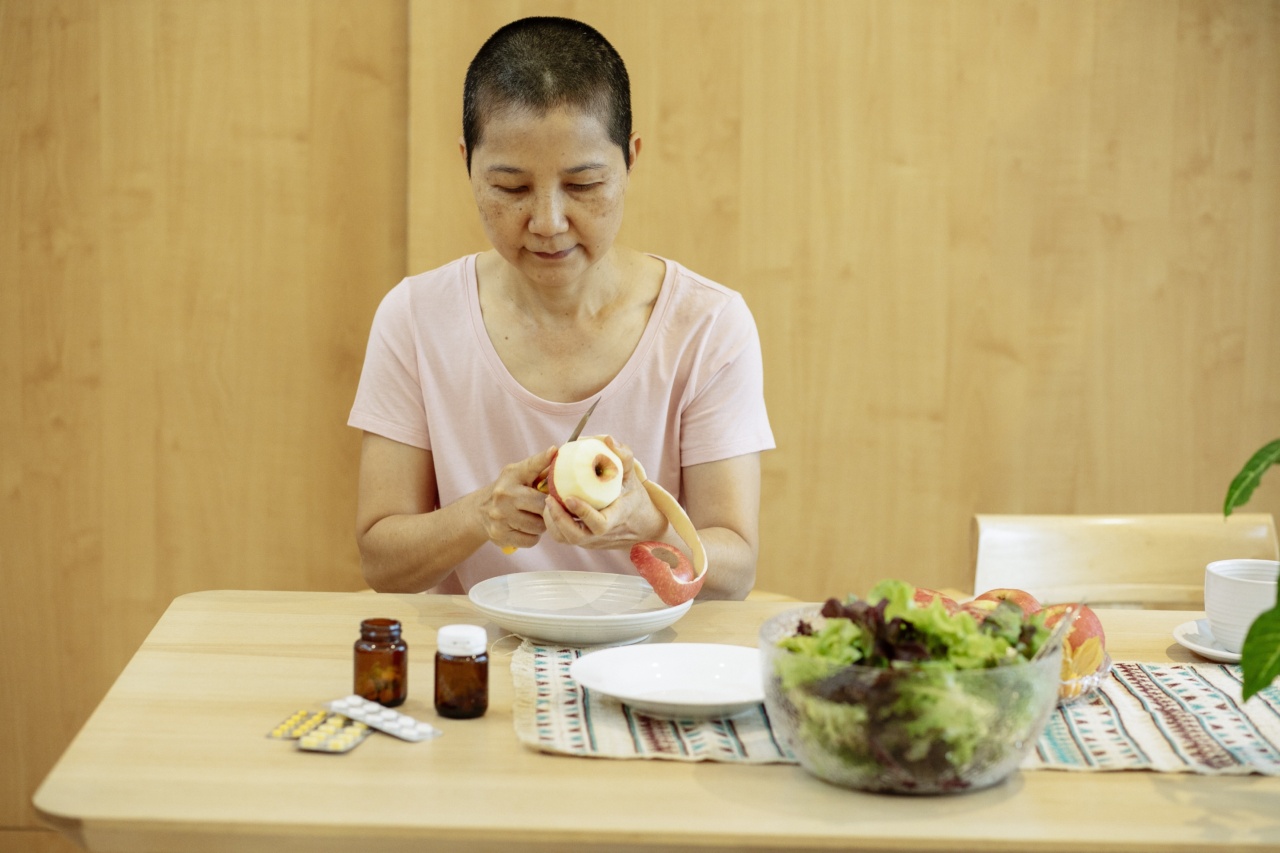Cancer patients often face challenges when it comes to maintaining a well-balanced diet during their treatment and recovery process.
The side effects of cancer therapies such as chemotherapy and radiation can affect their appetite, taste, and ability to eat certain foods. However, proper nutrition plays a crucial role in supporting their immune system, providing energy, and aiding in the recovery process.
In this article, we will explore some food choices that can help cancer patients improve their recovery and overall well-being.
Eating Enough Protein
Protein is an essential nutrient for cancer patients as it plays a significant role in repairing and rebuilding tissues, enhancing muscle strength, and supporting the immune system. It is essential to include adequate protein-rich foods in the diet.
Good sources of protein for cancer patients include:.
- Lean meats such as chicken, turkey, and fish
- Eggs
- Dairy products like milk, yogurt, and cheese
- Legumes such as beans, lentils, and chickpeas
- Nuts and seeds
Opting for Healthy Fats
Although high-fat foods are generally discouraged, cancer patients can benefit from consuming healthy fats, which can provide them with the necessary energy and support overall health. Some sources of healthy fats include:.
- Fatty fish like salmon, tuna, and sardines
- Avocados
- Olives and olive oil
- Nuts and seeds
- Nut butters like almond butter or peanut butter
Incorporating Fruits and Vegetables
Fruits and vegetables are rich in vitamins, minerals, and antioxidants that can support the body’s healing process and boost the immune system.
While some cancer treatments can cause taste changes or difficulty swallowing, there are ways to include these essential foods in the diet:.
- Choose soft, cooked vegetables instead of raw ones if chewing or swallowing is a challenge
- Include pureed or mashed fruits and vegetables in soups or smoothies
- Blend fruits and vegetables into juices or shakes for easier consumption
- Experiment with different flavors and textures to find what is palatable during treatment
Staying Hydrated
Proper hydration is essential for cancer patients, as certain treatments can cause dehydration. It is recommended to aim for at least eight cups of fluid daily. Some strategies to ensure adequate hydration include:.
- Sip water throughout the day
- Consume hydrating snacks like watermelon, cucumbers, or oranges
- Drink herbal tea or flavored water if plain water becomes unappealing
- Avoid excessive caffeine or sugary drinks, as they can worsen dehydration
Managing Digestive Issues
Certain cancer treatments can cause digestive issues such as constipation, diarrhea, or nausea. Including specific foods in the diet can help alleviate these symptoms:.
- Fiber-rich foods like whole grains, fruits, vegetables, and legumes can help with constipation
- Probiotic-rich foods like yogurt, kefir, and sauerkraut can aid in restoring good gut bacteria and reducing diarrhea
- Ginger and peppermint can help alleviate nausea and settle the stomach
- Small, frequent meals or snacks instead of large meals can help manage digestive discomfort
Modifying Texture and Consistency
For cancer patients experiencing difficulties with chewing or swallowing, modifying the texture and consistency of foods can make them easier to eat. Some strategies include:.
- Pureeing or blending foods to a smooth consistency
- Adding sauces, gravies, or broths to soften dry foods
- Mashing or finely chopping foods to make them more manageable to swallow
- Choosing softer foods like yogurt, pudding, or mashed potatoes
Emphasizing Nutrient-Dense Foods
During cancer treatment, it becomes essential to get the most nutrients out of every bite. Opting for nutrient-dense foods ensures that patients are getting the necessary vitamins, minerals, and calories. Some examples of nutrient-dense foods include:.
- Leafy greens like spinach and kale
- Colorful fruits and vegetables
- Whole grains like quinoa, brown rice, and oats
- Lean proteins like chicken, fish, and tofu
- Healthy fats like avocados and nuts
- Low-fat dairy or dairy alternatives
Supplementing when Necessary
In some cases, cancer patients may have difficulty meeting their nutritional needs through food alone. In such situations, dietary supplements can be considered under the guidance of healthcare professionals.
Some supplements commonly recommended for cancer patients include:.
- Protein powders or shakes
- Multivitamins
- Vitamin D
- Omega-3 fatty acids
- Probiotics
Seeking Professional Guidance
It is crucial for cancer patients to consult with a registered dietitian or a healthcare professional specializing in oncology nutrition.
These professionals can tailor dietary recommendations to individual needs, provide guidance on managing side effects, and offer support throughout the recovery process.
Conclusion
While undergoing cancer treatment and recovery, maintaining a healthy diet can support improved outcomes.
Opting for protein-rich foods, healthy fats, fruits, vegetables, staying hydrated, managing digestive issues, modifying food texture, emphasizing nutrient-dense foods, and considering supplements when necessary are all essential aspects of supporting the recovery process. Professional guidance is highly recommended to develop a personalized nutrition plan that addresses individual needs and enhances overall well-being during this critical phase.




























